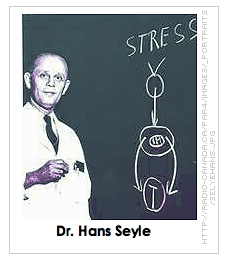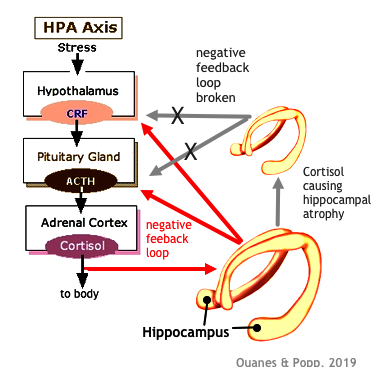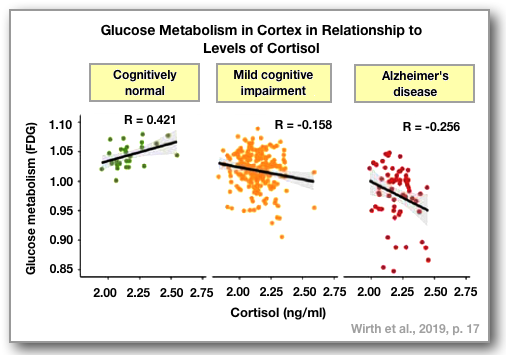|
|
PSY 340 Brain and Behavior Class 30: Stress and Health [Outline] |
|
Think of the kinds of stress you or other college students experience generally?
Demands of work and school at the same time?
Taking care of children or sick parents while holding down a job?
Demands at work that you give 110%?
Taking too many classes?
Personal life-threatening illness? Other Chronic illness?
COVID-19!!!!!
War in Ukraine & threat of nuclear war!!
![[Brain Image]](../graphics/head_space.gif)
 I. Stress and the
Autonomic Nervous System
I. Stress and the
Autonomic Nervous System
